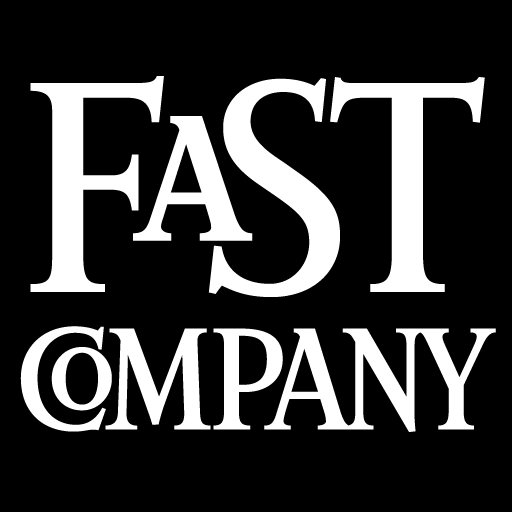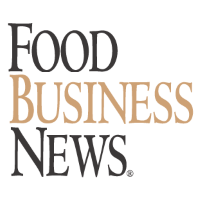
Brandless is Sending a Very Important Message to Organic Food Brands
As you are probably familiar with by now, a direct-to-consumer start-up recently launched called Brandless.
Armed with $50 million from Silicon Valley venture capitalists, Brandless sells organic and Non-GMO food and household items, almost all of which are $3. Its goal is to sell organic products at the lowest possible price, hoping to persuade consumers that its generic-looking products spare them from having to pay a premium that other brands must charge, trademarked as BrandTax. (As we all know, Brandless is a brand unto itself and its products are not generic.)
This approach by Brandless, along with organic food companies facing increasing margin pressure due to new distribution models and a greater emphasis on private label and supermarket brands, is making brand building more important than ever.
While price will always be a critical factor in purchasing decisions, organic food companies must not allow consumers to think that price is the only factor.
Furthermore, while many consumers may believe that simply buying organic ensures them the highest quality, this is just the not the case. The USDA organic seal ensures that a basic set of criteria is met, but many brands go above and beyond what is required. As a result, the quality level is not universal; organic food brands are not interchangeable.
Given this reality, it falls on the shoulder of each organic brand to convey how its product is being produced and the impact that it is having on the community. More specifically, organic food brands must do a much better job of storytelling, an area that far too many companies ignore.
Cornucopia’s Organic Egg Scorecard demonstrates the varying degree of quality among certified organic eggs.
In arriving at its rankings, Cornucopia takes into account a wide range of criteria, such as indoor space per bird, outdoor management system, natural sunlight, ownership structure, type of feed, and many others. In its final rankings, which rate all organic egg brands from 5 to 1, it becomes shockingly clear that all organic eggs are not the same.
However, by no means is this variation in quality limited to products where animals are involved. Organic olive oil, which is a commodity sold by many different brands, is a good example to use.
One brand’s distinct variety of olives could be unique, it could be farming with regenerative organic agriculture practices, the farm workers could be treated in a very fair manner or the company could be reinvesting back into the community.
Yet, if a consumer is at the supermarket or shopping online and is not educated on the true value that a brand is offering, price becomes the default factor.
While dedicating specific people or funds to reach out to journalists, bloggers and influencers may or may not be possible, all brands have presences and followings on social media. Be sure to leverage existing social media resources and figure out ways to more effectively, creatively and prominently tell your story. Social media is a vastly underutilized resource for this purpose.
As you embark on this process, it is critical to remember that the more compelling a brand’s story, the greater the perceived value in the minds of consumers.
So, take your time and get really clear about what aspects of your story are going to resonate the most with your target audience. Solicit feedback from your different stakeholders, both internal and external. Do observational research with your consumers to understand their unmet needs and unspoken desires.
These people won’t just be your loyal customers, but they’ll be unofficial brand advocates doing word-of-mouth marketing for you, whether it is 1-on-1 or to thousands of followers on social media.
The launch of Brandless should spur some self-reflection, and organic food companies might be well-served to query themselves the following: Let’s take an honest assessment of how we are telling our story and figure out a way to do it better, so that consumers are very clear about what we stand for and how we are making the world a better place.
With competition in the organic marketplace intensifying, building your brand is more important than ever.

(Photo at the top courtesy of Brandless)
 |
Have a great day! 
Max Goldberg, Founder |
Quick Hits
* In light of the fact that the EPA did not ban chlorpyrifos, Senator Tom Udall (D-NM) has taken matters into his own hands and has put forth a bill do just that. Please click HERE and tell your senators to ban this super-toxic chemical, which is very harmful to the development of kids.
* With Reps. Chellie Pingree (D-ME) and Dan Newhouse (R-WA) recently having introduced a bill to increase organic research funding to $50 million annually, there will be two listening sessions this week discussing this piece of legislation, one in California and the other in Minnesota.
* I love this Tweet from my friends at Sol Simple – a poster showing how they are partnering with Patagonia to promote organic regenerative agriculture practices in Nicaragua.
* I’ve always said that Erewhon, which I believe to be the best organic market in the country, is reason enough to live in West Hollywood or Venice. Residents of downtown Los Angeles should be thrilled, as this organic mecca will soon be open in your neighborhood.
* Before Anthony Scaramucci’s unceremonious firing from the White House, it was disclosed that he has a stake in NYC-based Juice Press.
* It’s ironic because just as he is leaving, the pressed organic juice chain will be opening its first location in Washington, D.C.
* Detroit’s pressed organic juice powerhouse, Drought Juice, will soon be setting up shop in Ann Arbor — great news for the people at the University of Michigan.
* Lastly, Cafe 21 in San Diego has introduced an all-organic cocktail menu.
Weekly News Summaries


Organic Farmers Express Concern About an Amazon-Owned Whole Foods
By Adele Peters
Farmers are very worried that Amazon will push the price of food down to a level that is not sustainable for their livelihoods.

Fortune 500 Cafeterias are Switching to Local and Organic Ingredients
By Jade Scipioni
Phenomenal news! Aramark, which services the cafeterias of more than 85% of Fortune 500 companies, will be featuring more locally-sourced and organic ingredients.

Oregon Hosts the Inter-American Commission for Organic Agriculture
The Inter-American Commission for Organic Agriculture, a group of 19 countries in the Americas, recently met in Oregon for four days to share knowledge and discuss trade.

The Downside of Too Many Farmers Markets
By Beth Teitell
An interesting look at how an increasing number of farmers markets is actually making it harder for some farmers.


MUST-READ: How Patagonia's Yvon Chouinard is Leading with His Environmental and Social Conscience
By Abe Streep
Outdoor gear and organic food company Patagonia is taking a real stance when it comes to environmental issues and social justice. So inspirational.

CircleUp to Now Issue Loans
By Ryan Lawler
CircleUp, which has helped CPG start-ups raise millions in equity capital, will now be making direct loans to companies as well.

How Daily Harvest Leveraged Instagram to Build its Brand and Attract Celebrity Investors
By Tanya Dua
Through its very savvy use of Instagram, Daily Harvest, a NYC-based smoothie and soup start-up, has built a burgeoning brand and attracted investment from Gwyneth Paltrow and Serena Williams.

EPIC Advocates for Regenerative Agriculture
By Melaina Juntti
EPIC Founders Taylor Collins and Katie Forrest discuss how the company is aiming to be a model for regenerative agriculture on its new farm in Central Texas.

Campbell's Partners with Brooklyn Foodworks
By Monica Watrous
In another sign that CEO Denise Morrison really "gets it", Campbell's has partnered with Brooklyn Foodworks, an early-stage food incubator in New York City.
The material in this newsletter is copyrighted and may be reprinted by permission only. All requests must be in writing. Please use our contact form to request republication rights.
Newsletter Archive
Quick Hits
* In light of the fact that the EPA did not ban chlorpyrifos, Senator Tom Udall (D-NM) has taken matters into his own hands and has put forth a bill do just that. Please click HERE and tell your senators to ban this super-toxic chemical, which is very harmful to the development of kids.
* With Reps. Chellie Pingree (D-ME) and Dan Newhouse (R-WA) recently having introduced a bill to increase organic research funding to $50 million annually, there will be two listening sessions this week discussing this piece of legislation, one in California and the other in Minnesota.
* I love this Tweet from my friends at Sol Simple – a poster showing how they are partnering with Patagonia to promote organic regenerative agriculture practices in Nicaragua.
* I’ve always said that Erewhon, which I believe to be the best organic market in the country, is reason enough to live in West Hollywood or Venice. Residents of downtown Los Angeles should be thrilled, as this organic mecca will soon be open in your neighborhood.
* Before Anthony Scaramucci’s unceremonious firing from the White House, it was disclosed that he has a stake in NYC-based Juice Press.
* It’s ironic because just as he is leaving, the pressed organic juice chain will be opening its first location in Washington, D.C.
* Detroit’s pressed organic juice powerhouse, Drought Juice, will soon be setting up shop in Ann Arbor — great news for the people at the University of Michigan.
* Lastly, Cafe 21 in San Diego has introduced an all-organic cocktail menu.
